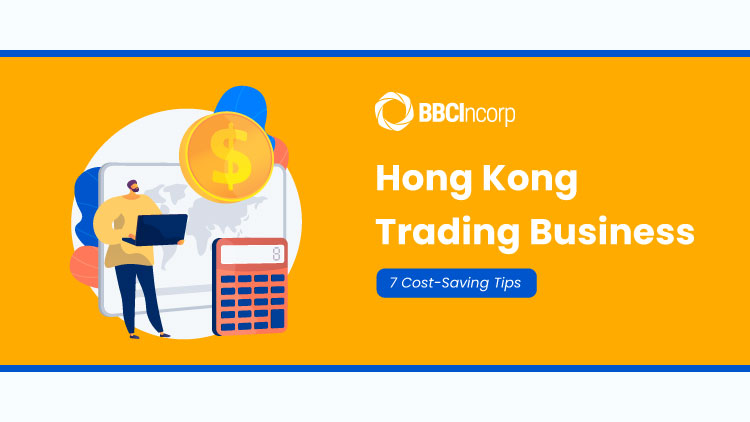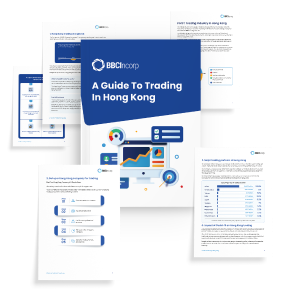
Despite free ports, trading in Hong Kong, or importing in particular, can cost you a pretty penny if you don’t import the right way.
Customs fees are deemed to be the most popular cost when it comes to buying goods overseas. Still, it only accounts for a small portion of your total importing costs. Without relevant knowledge and careful attention, you may waste a pricey sum.
It is important for traders to be aware of these potential expenses so that they can budget for them appropriately and ensure that their import business remains profitable.
What to consider when importing goods to Hong Kong
There are various costs that are associated with importing goods while starting trading in Hong Kong. The most obvious cost is the price of the product itself, which includes the cost of the goods as well as any taxes or duties that may be levied by Customs. In addition, there are other expenses that can add up quickly, such as shipping and insurance costs, and the cost of clearing customs.
Other possible hidden fees you should consider are currency conversion rates and credit card fees. It is important to do your research and calculate all of these costs before deciding to import products into Hong Kong. This will help you to make sure that you are getting the best deal possible and that your business is not losing money on importing goods.
Let’s delve into some of the most common costs associated with importing products and goods into Hong Kong:
Freight and insurance
The cost of transporting goods to Hong Kong, as well as insuring them against damage or loss, can be significant. Traders should factor this into their overall budget when importing products.
Customs duties and taxes
The good news is that Hong Kong doesn’t impose any tariff on imports except for dutiable products, including liquors, tobacco, hydrocarbon oil, and methyl alcohol. The dutiable goods may be also subject to excise tax.
Administrative and logistical costs
There are a number of administrative and logistical costs that traders may have to pay when importing products into Hong Kong. These can include fees for customs clearance, storage, and transportation.
Currency exchange cost
When a Hong Kong company imports goods from a foreign country, it must pay the cost of exchanging its Hong Kong currency for the currency of the country where the goods are sourced.
Seven tips to keep your costs down
Take the following tips to cut down the cost burden of importing costs for your Hong Kong trading company:
Tip 1: Partner with the right supplier/manufacturer
Compare prices and choose a supplier with the best price. When it comes to Hong Kong trading companies, price is always a decisive factor when making a purchase decision. It’s important to compare prices between different suppliers and choose the one with the best price.
As a shipping business, it’s in your best interests to liaise with a supplier that doesn’t compromise the integrity of your supply chain. Raising the question of “How much do they cost” is certainly one way to begin your selection process; as it has direct contingency on your bottom line.
While that few hundred-dollar price difference might look appealing in the short term, it’s not worth it if you consider the level of compromises that follows. It’s not uncommon for suppliers to opt for the “slow steaming” option in ocean shipping; a logistical solution that involves ships moving at a marginally slower pace to save fuel, thereby allowing the supplier to offer their service at a much more preferable price range.
But of course, this is not without its drawbacks in cases of product return where the products have to make their journey all the way back to the supplier in the same manner. A worse scenario is the customer demanding an immediate replacement, costing you even more on air freight.
Keep in mind that price is not always the only deciding factor, as quality and service should also be taken into account. With careful consideration, you can be sure to find the best supplier for your needs at the best price.
Make sure the supplier is registered with Hong Kong Customs. When importing goods into Hong Kong, it is important to work with a supplier that is registered with Hong Kong Customs. This will ensure that all of the necessary paperwork and customs declarations are filed correctly and that you avoid any potentially costly delays or fines.
Tip 2: Pay careful attention to the shipping process
Bundle small goods
One way to reduce the cost of importing goods is to combine smaller quantities into a larger quantities before shipping. This will make the shipment more cost-effective overall, as it will be classified as a single shipment with a higher weight and volume. This will also allow you to take advantage of any shipping discounts that may be available.
Choose a freight forwarder
It is recommended to choose a shipping method that is both economical and fast. One option is to use a freight forwarder. Freight forwarders can save you money by negotiating lower shipping rates and they can also help you to avoid customs delays. Another option is to use an express courier service. Express couriers offer fast, reliable shipping and they can usually get your goods to Hong Kong in a matter of days.
If you are looking for a more economical shipping option, consider using sea freight. Sea freight is often cheaper than air freight, but it can take longer to arrive in Hong Kong. However, if you are not in a hurry to receive your goods, sea freight can be a cost-effective option.
Maintain frequent communication
If you are running a Hong Kong trading company, it is important to keep track of the shipping process and follow up with the supplier if there are any problems. This will help to reduce import costs and ensure that your products arrive on time. Additionally, you can also save money by negotiating better prices with suppliers and choosing the right shipping carrier.
Make sure the goods are properly packaged to avoid damage in transit. When you’re importing goods into Hong Kong, it’s important to make sure they are properly packaged so they don’t get damaged in transit. Here are a few tips to help you reduce your import costs:
Be thorough with packaging
When you’re importing goods into Hong Kong, it’s important to make sure they are properly packaged so they don’t get damaged in transit. Here are a few tips to help you reduce your import costs:
- Make sure the goods are tightly packed in boxes or crates to avoid movement during transit;
- Use vibration-damping materials to protect the goods from movement and shock;
- Use strong packing materials like bubble wrap or styrofoam to protect the goods from impact damage;
- Label all boxes and crates with clear shipping labels, including the destination address and contact information;
- Arrange for insurance coverage on the goods in case of damage or loss during transit;
- Packaging your goods properly is essential for ensuring they arrive safely and without damage.
Tip 3: Import from nearby countries
The strategic location is one of the key reasons why you start your trading business in Hong Kong. When importing goods into Hong Kong, companies can save on transportation costs by sourcing products from countries in close proximity.
For example, China is a nearby country that offers a variety of products that can be imported into Hong Kong. Using this advantage, Hong Kong companies can reduce their transportation costs and save on overall import expenses. Taiwan is also a close territory to China and known for its electronic products, which can be a great option for Hong Kong companies looking to save on import costs. Additionally, Taiwan offers a number of other goods that can be imported into Hong Kong at a lower cost than products from other countries.
Tip 4: Check the import duty and tax rates
When importing dutiable goods into Hong Kong, it is important to check the duty and tax rates before placing an order. The Hong Kong Customs and Excise Department website provides a Duty and Tax Calculator that can help you determine the applicable rates.
There are a few ways to reduce the costs of importing goods:
- Check the eligibility of your goods for free importation;
- Use a freight forwarder to clear your goods through customs;
- Claim relief from duties and taxes.
Tip 5: Leverage trade agreements
Hong Kong has signed free trade agreements with several countries, including Mainland China, Macau, and ASEAN. These agreements allow Hong Kong businesses to import goods at reduced tariffs or with no tariffs at all. Out of the burgeoning 45 global tax treaties Hong Kong has, the most notable one must be the Mainland and Hong Kong Closer Economic Partnership Arrangement (CEPA); a regulatory gateway for Mainland enterprises to enter the global market.
Tip 6: Track import with software
When importing goods into Hong Kong, it is important to keep track of all the related expenses in order to minimize costs. One way to do this is by using import software to help you manage your shipping and customs processes, as well as keep track of your spending.
There are all sorts of options ranging from small to mid-sized and enterprise-level importers and distributors. Some software can help you track your shipments from start to finish, while others provide more detailed information about your customs filings. It is also important to make sure the software is up to date with Hong Kong’s import regulations. Using import software can help you avoid costly mistakes and ensure that your shipments arrive quickly and safely.
Tip 7: Avoid currency exchange
Avoid exchanging your currency for Hong Kong dollars. This will save you money on the exchange rate. You can do this by using a credit or debit card that does not charge foreign exchange fees, or by withdrawing money from an ATM in Hong Kong. If you have to exchange your currency, try to do it at a bank or currency exchange office, rather than a tourist trap. These places offer better rates and are typically more reliable.
Related reading: 6 success tips for Hong Kong trading company.
The bottom line
Reducing import costs can be a challenge for Hong Kong trading companies, but with the right strategies in place, it is possible to keep these expenses under control. Getting to know these tips help you scale down importing costs but there are many more to learn for trading in Hong Kong.
If you’d like to move the conversation to company formation in Hong Kong instead, please don’t hesitate to contact us for further details.
Start an offshore company in Hong Kong for overseas trade
Our guide can help.

Disclaimer: While BBCIncorp strives to make the information on this website as timely and accurate as possible, the information itself is for reference purposes only. You should not substitute the information provided in this article for competent legal advice. Feel free to contact BBCIncorp’s customer services for advice on your specific cases.
Industry News & Insights
Get helpful tips and info from our newsletter!
Stay in the know and be empowered with our strategic how-tos, resources, and guidelines.


